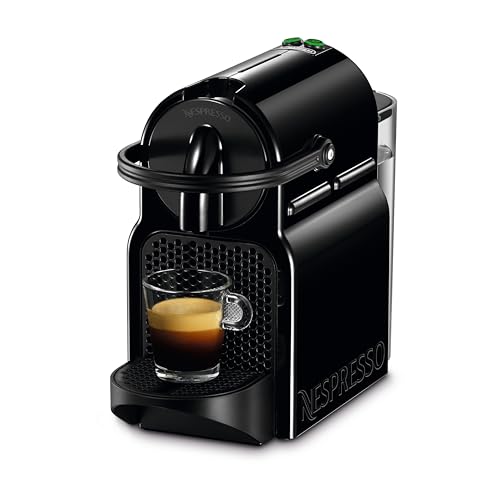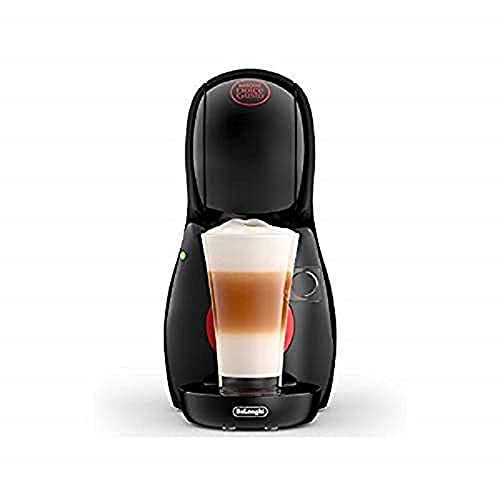The 10 Scariest Things About Coffee Machine For Home
페이지 정보
작성자 Elias Childs 댓글 0건 조회 5회 작성일 24-12-09 14:22본문
 Buying a Coffee Machine For Home
Buying a Coffee Machine For HomeIf you are looking to buy a coffee machine for home it's worth investing in accessories such as the tamping mat as well as a set of coffee scoops. You'll need to stock up your beans and milk.
 This semiautomatic system combines the user-friendly assisted tapping and auto-dosing of 2022 Barista Touch Impress with a milk frothing wand to create an elegant set-up that will take your home coffee to new heights. It's also smart, as it connects to Alexa and utilizing geofencing technology.
This semiautomatic system combines the user-friendly assisted tapping and auto-dosing of 2022 Barista Touch Impress with a milk frothing wand to create an elegant set-up that will take your home coffee to new heights. It's also smart, as it connects to Alexa and utilizing geofencing technology.Filter coffee machines
Filter machines are probably the most used coffee makers for home use. They warm water, and let it pass through ground coffee before returning it to the pot. This creates a strong smooth and smooth concentrate that is then reduced and served from a separate carafe. These coffee machines are generally easy to use, and usually come with a glass mug which can hold a decent number of cups at once which is a great benefit for those with large families or friends. They also tend to have lower costs than other models, which could make them an ideal option for those who are on a tight budget.
Most models of this type feature a compartment that holds the coffee ground, and the tube is positioned to rise from the bottom of the container. The water is heated with a resistive element, then dripped through the coffee grounds and into the pot. The reservoir can hold a large amount of water, and it can be filled to continue the cycle.
Many models of coffee makers have an one-way valve which prevents the cold water from mixing with the heated water. This can reduce energy consumption and assists in keeping the water hot for a longer duration. Most of these machines also come with a warming plate made of steel that can aid in keeping the water hot for a certain time.
If you're using a filter coffee pot machine machine then you'll need determine the ideal amount of ground coffee, and then put it into the filter prior to starting the brewing process. The majority of these coffee makers require two tablespoons of ground coffee for every six ounces water. However, it is best to consult with the manufacturer prior to making a decision on a specific ratio.
After adding the ground coffee to the tank and then adding the water, it is a good idea for the coffee to expand and then bloom. This is when the beans release their aroma and flavor. Then you can add the rest of the water in a circular motion over the grounds of the coffee and wait for the brewing process to be completed.
Like other types of coffee machines Filter coffee makers, too, can occasionally experience issues. Cleaning them frequently is crucial to prevent the formation of hard water, and other contaminants that could block the tubes and alter the taste of coffee. Cleaning should be easy and quick, as the majority of the components can be cleaned using the dishwasher. It's important to clean the tube that connects the aluminum heating tube with the cold-water pipe regularly. If you're having trouble with your coffee maker, it might be worth running vinegar through the machine prior to trying to make any repairs that are more extensive.
Espresso machines
Espresso is a well-loved coffee drink. It has experienced an enormous increase in popularity over the last decade. Many people love making their own espresso at home. You can find an espresso machine virtually everywhere. Although the machines at home are not as large and powerful like those in restaurants, they work with the same basic principles. You can master the brew to create a variety espresso drinks.
A basic espresso machine for home use will include the heating container, a portafilter, and a valve to let steam out. The machine will heat the water to the ideal temperature to make espresso when you turn it on. When the water is hot you can pour your espresso in the basket and then tamp it down. Then, you'll add a portafilter lid and an espresso filter to the machine. The water will be forced through the grounds with an electric pump. The pressure created by the water pushing through the grounds will result in a strong shot of espresso. You can add milk to the drink to make a cappuccino or macchiato.
If you're planning to make lattes or cappuccinos You might be thinking about buying milk frothers. You'll also need espresso cups and a machine cleaning brush. It is also possible to require a tamping mat for your portafilter.
You can also use your espresso machine to make other types of coffee, too. You should be aware that the process may take longer and the result could be less than ideal. For best home coffee maker results, you should choose the best specialty coffee that is labeled for espresso making.
The size of the boiler as well as the pressure level in your machine can affect how your drinks taste. Larger machines have bigger boilers, which are able to produce more drinks in less time. They can also produce espressos that are stronger with a higher pressure.
Some machines feature an automatic piston-and-spring design which allows you to control the force at which you push water through the ground. This allows you pull espresso with the desired consistency and strength. Modern machines have replaced this with electric pumps that utilize rotary vein technology to ensure you get the perfect flavor and consistency for your espresso. These are called semi-automatic espresso machines. They offer a bit more control for the barista at home than automatic machines but still don't allow you to adjust every aspect of the brew just like you would on a professional espresso machine. They are simple to use and produce great coffee.
Bean-to-cup machines
The name implies, a bean-to-cup machine is an espresso machine that has an integrated grinder as well as an essential component called the brewing unit. When you press a button the grinder will grind and tamp your chosen beans, the brewing unit will then heat water to brew them and after the coffee has been made, the grounds are automatically ejected into an internal waste bin - you can also add milk if you like.
A lot of bean-to-cup machines come with built in coffee machine-in self-cleaning systems that flushes the machine with hot water after each use. This ensures that excess coffee does not accumulate in the pipes, which is normally needed every few months. This is a fantastic feature for those who drink often and want to ensure the machine is as clean as possible.
Some bean-to-cup machines don't have a milk frother at all, if you prefer to add milk by hand from a jug, or splash it into a cafetiere. If you plan to serve cappuccino, latte or any other milk-based drinks, you'll need a machine that can handle the frothering process. The majority of bean-to-cup machines that can froth the milk come with an wand called Panarello that's a sheath which can be removed only when you are making the cappuccino or latte. If you're looking to achieve a high-quality froth, we'd recommend getting one of the best coffee makers that have a professional steam wand since they're able to produce thicker milk froth that is ideal for traditional cappuccino.
For busy homes and offices A bean-to-cup coffee maker can be a great option. They are simple to operate and produce high-quality coffee. They can be programmed to begin in the morning or shortly when you arrive home, ensuring that your cup is ready when you arrive. They can also save businesses money on hiring baristas, which is particularly beneficial for those with high turnover in staff.
Visit the official Loveramics website for more details about our recommended range of espresso machines. You can also apply the code "LoveCoffee" at the checkout to receive 20 percent off your purchase! Don't forget that we are also giving away a set of Loveramics cups to all Coffee Blog readers! Click here to enter. The winners will be announced the 29th of June on Friday.
댓글목록
등록된 댓글이 없습니다.